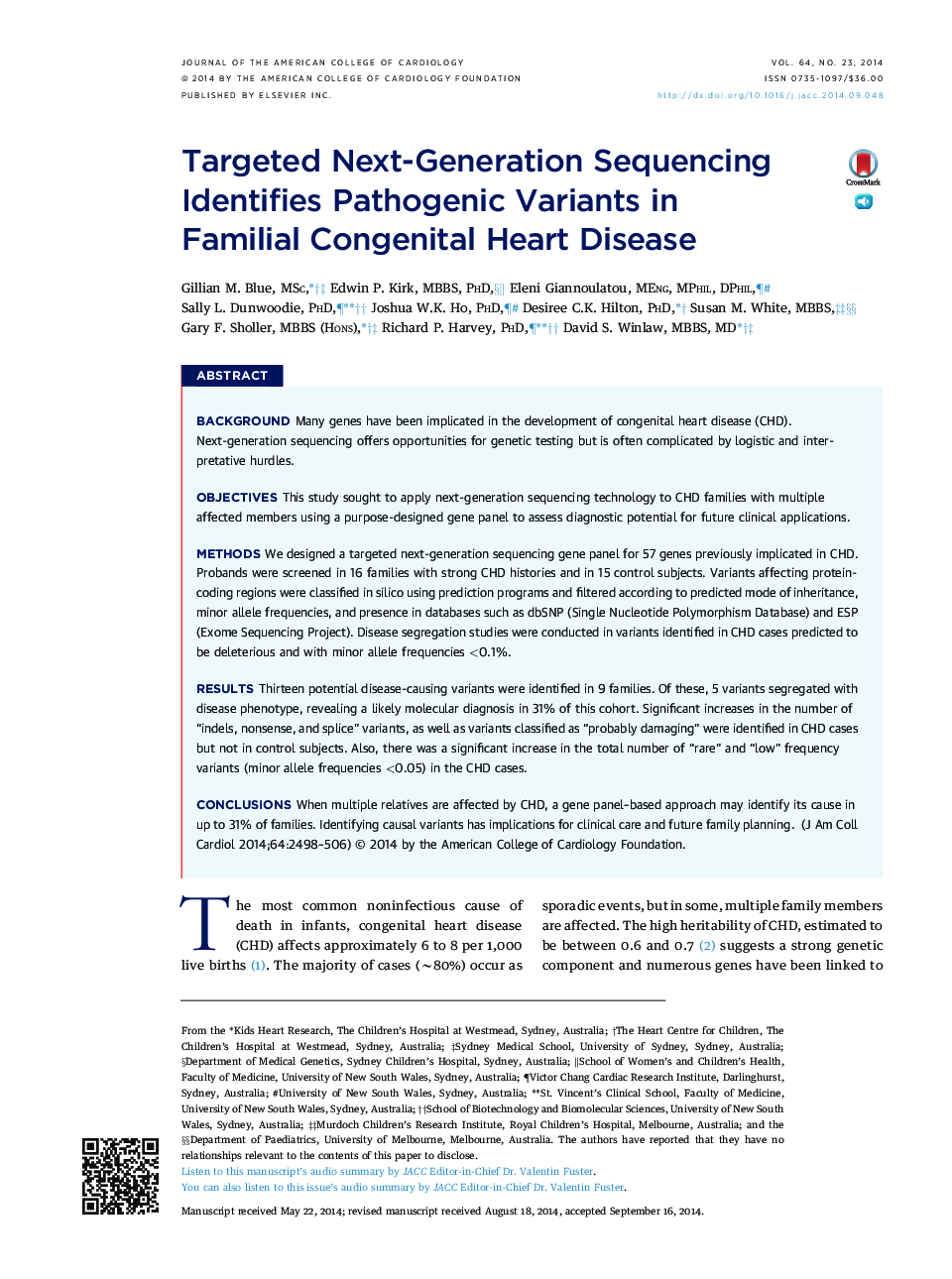| کد مقاله | کد نشریه | سال انتشار | مقاله انگلیسی | نسخه تمام متن |
|---|---|---|---|---|
| 2943979 | 1577071 | 2014 | 9 صفحه PDF | دانلود رایگان |
BackgroundMany genes have been implicated in the development of congenital heart disease (CHD). Next-generation sequencing offers opportunities for genetic testing but is often complicated by logistic and interpretative hurdles.ObjectivesThis study sought to apply next-generation sequencing technology to CHD families with multiple affected members using a purpose-designed gene panel to assess diagnostic potential for future clinical applications.MethodsWe designed a targeted next-generation sequencing gene panel for 57 genes previously implicated in CHD. Probands were screened in 16 families with strong CHD histories and in 15 control subjects. Variants affecting protein-coding regions were classified in silico using prediction programs and filtered according to predicted mode of inheritance, minor allele frequencies, and presence in databases such as dbSNP (Single Nucleotide Polymorphism Database) and ESP (Exome Sequencing Project). Disease segregation studies were conducted in variants identified in CHD cases predicted to be deleterious and with minor allele frequencies <0.1%.ResultsThirteen potential disease-causing variants were identified in 9 families. Of these, 5 variants segregated with disease phenotype, revealing a likely molecular diagnosis in 31% of this cohort. Significant increases in the number of “indels, nonsense, and splice” variants, as well as variants classified as “probably damaging” were identified in CHD cases but not in control subjects. Also, there was a significant increase in the total number of “rare” and “low” frequency variants (minor allele frequencies <0.05) in the CHD cases.ConclusionsWhen multiple relatives are affected by CHD, a gene panel–based approach may identify its cause in up to 31% of families. Identifying causal variants has implications for clinical care and future family planning.
Journal: Journal of the American College of Cardiology - Volume 64, Issue 23, 16 December 2014, Pages 2498–2506
